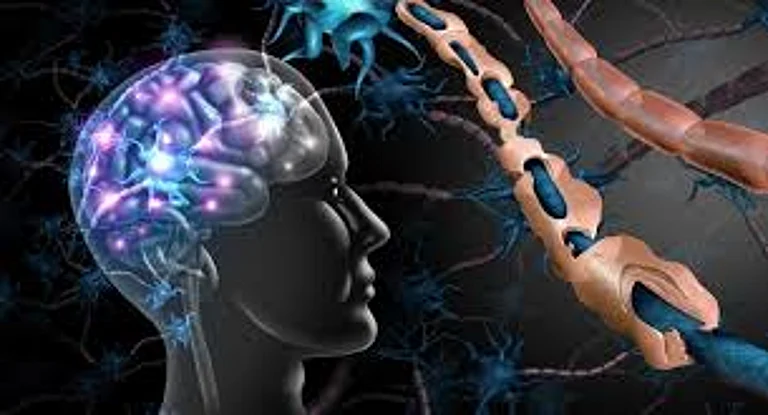In today’s digital economy, the intersection of artificial intelligence (AI), compliance, and public trust is a space undergoing rapid transformation. At the forefront of this academic and professional conversation is Dwaraka Nath Kummari, an engineer and researcher whose career has spanned nearly two decades in finance, manufacturing, and telecom. His recent co-authored research article, Decision Support Systems for Government Auditing: The Role of AI in Ensuring Transparency and Compliance, published in the International Journal of Finance (link), offers a timely exploration of how decision support systems (DSS) can reshape public sector accountability in the era of big data.
From Engineering to Ethical AI Leadership
Dwaraka’s journey into advanced audit frameworks began with a strong technical foundation. With a B.Tech in Electronics and Communications followed by an MBA, he has built an 18-year career across multiple domains, from enterprise infrastructure to manufacturing digitalization. Over nine of those years, he has worked in the United States, focusing on scaling architectures that align with evolving regulatory standards.
His experience integrates enterprise systems like Infor ERP, ServiceNow, and AWS with AI-driven modules to design frameworks for continuous auditing. He has also contributed to predictive maintenance systems in manufacturing and cloud-native architectures that support compliance across global regulators. What sets Dwaraka apart is not only technical mastery but also a consistent commitment to the ethical application of emerging technologies in complex industries.
A Research Contribution with Global Relevance
The research article co-authored by Dwaraka and Jai Kiran Reddy Burugulla addresses a pressing concern: how governments can use AI-based decision support systems to ensure financial integrity and compliance in an increasingly digitized public sector. The study provides both a literature review and a conceptual framework for DSS integration into government auditing processes.
One of its central arguments is that traditional auditing methods—reliant on small samples of data—are no longer sufficient. Modern legislation demands full inquiry compliance across entire data ecosystems. The article illustrates how AI-enabled systems can automatically generate audit queries, reducing human error and strengthening compliance structures.
Equally important, the paper does not shy away from discussing the risks. It acknowledges algorithmic opacity, information asymmetry, and the ethical dilemmas of AI adoption. By presenting a balanced perspective, the study contributes to a broader understanding of both the opportunities and challenges of applying AI to government accountability.
Practical Expertise in Compliance and Risk
Beyond research, Dwaraka’s career highlights include leading the design of AI-driven compliance management systems that reduced audit cycle times by nearly half for a Fortune 500 firm. His work consistently demonstrates how predictive fraud detection and automated risk workflows can improve accuracy while freeing human auditors to focus on high-value oversight.
In manufacturing, he has leveraged IoT-enabled predictive maintenance to minimize downtime, while his experience in telecom has emphasized the scalability of infrastructure under heavy data demands. Across these domains, the common thread is a focus on transparency, resilience, and efficiency—principles that mirror the objectives outlined in his academic research.
The Role of Decision Support Systems in Governance
Dwaraka’s recent publication outlines how decision support systems have evolved from simple computational tools into intelligent platforms capable of aggregating multi-source data, enabling predictive modeling, and supporting real-time analysis. Within the context of government auditing, these systems serve as a safeguard for public trust by enabling more comprehensive oversight.
The paper emphasizes that auditing is not merely a procedural activity; it is a foundational element of good governance. By offering automated yet transparent mechanisms, AI-based DSS can help governments detect fraud, assess compliance, and provide reliable financial reporting. Importantly, the study situates these technological advancements within broader regulatory and societal contexts, reinforcing the need for ethical guidelines and public accountability.
Bridging Academia and Practice
What distinguishes Dwaraka’s work is his ability to bridge theory with real-world application. On one hand, he has contributed more than 20 peer-reviewed papers and holds patents in compliance reporting and digital twin-based quality assurance. On the other, he brings first-hand industry experience in designing systems that align with global standards like SOX, GDPR, and SEC requirements.
This dual perspective allows him to move fluidly between research and implementation, ensuring that academic insights are tested against practical realities. His thought leadership, shared at international conferences, continues to influence both industry practitioners and fellow researchers.
A Future Built on Transparency and Resilience
Looking forward, Dwaraka envisions a convergence of continuous compliance and digital manufacturing on secure, scalable infrastructures. The goal is not only to improve efficiency but also to create systems that uphold ethical responsibility and public trust. As governments and enterprises grapple with the complexities of automation, his research offers a clear reminder: technology must serve as a tool for accountability, not an instrument of opacity.
The implications of his work extend beyond government auditing. By refining the principles of decision support systems, the frameworks can be adapted to industries such as finance and manufacturing, where regulatory oversight and operational resilience are equally critical. His vision underscores the potential of AI not as a replacement for human judgment but as a complement that enhances decision-making with speed, accuracy, and transparency.
Conclusion
The trajectory of Dwaraka Nath Kummari illustrates how technical expertise, research, and ethical commitment can converge to address some of society’s most pressing challenges. His contributions to decision support systems for auditing highlight both the promise and responsibility inherent in deploying AI at scale.
As public institutions and private enterprises alike navigate a future defined by data-driven decision-making, voices like Dwaraka’s will play a crucial role in shaping systems that balance efficiency with accountability. By advancing both theory and practice, his work lays a foundation for more transparent, resilient, and trustworthy frameworks in governance and beyond.


























